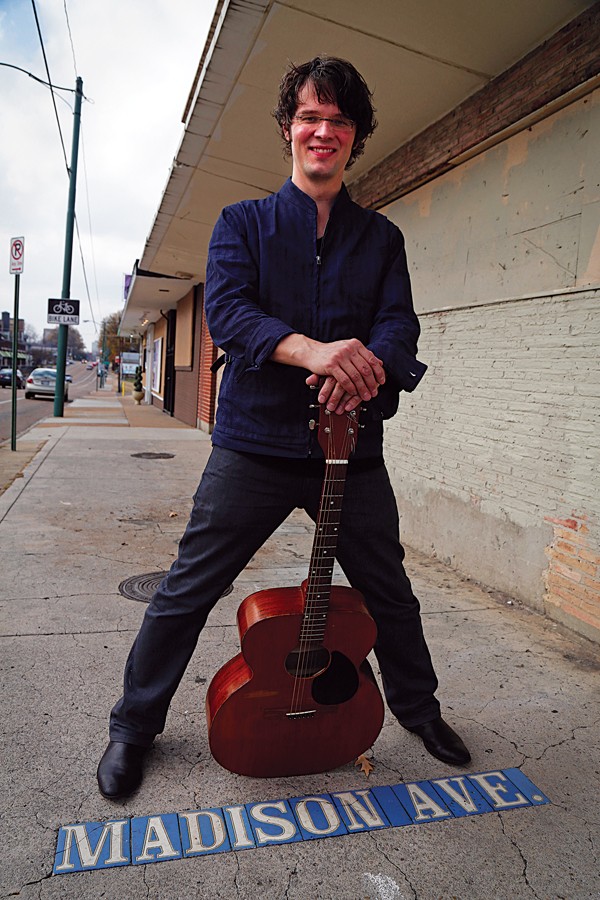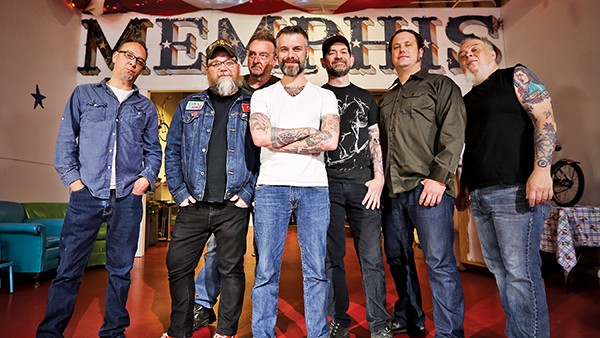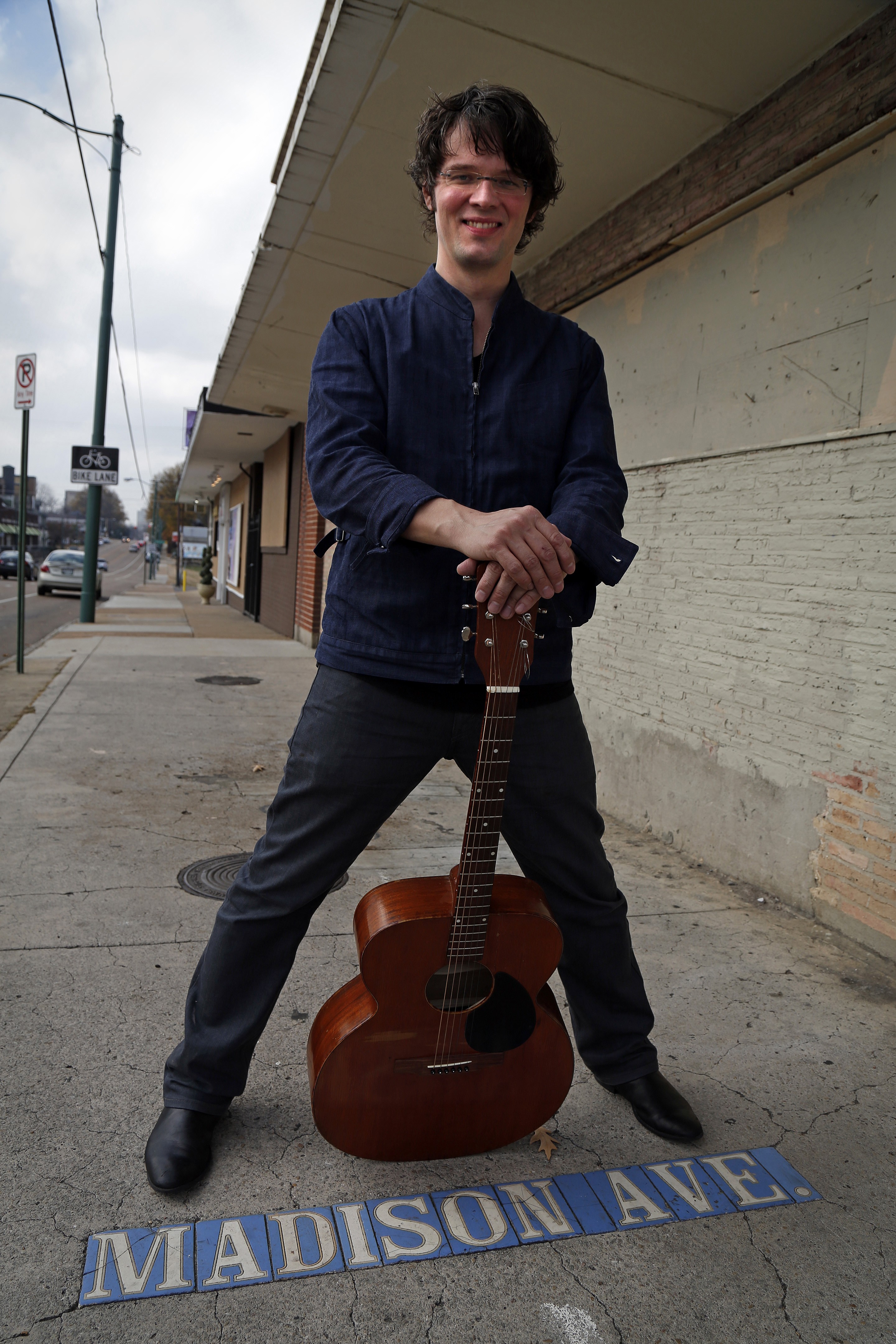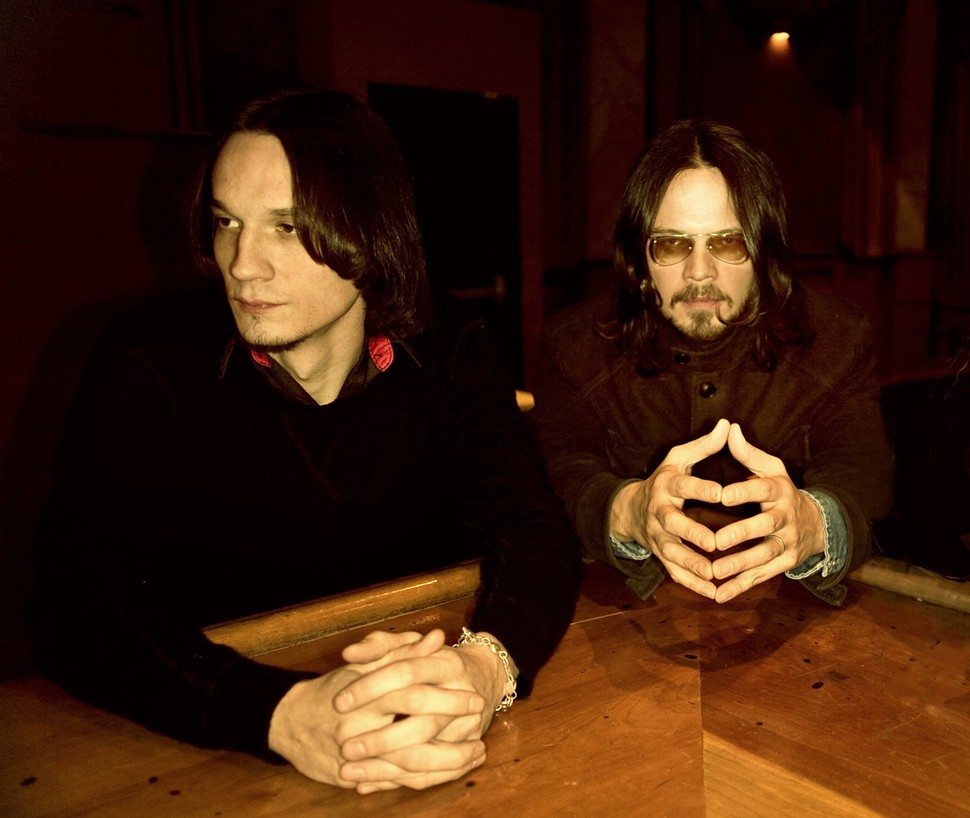 Mike Kerr
Mike Kerr
Luther Dickinson
Luther Dickinson, along with his younger brother Cody, founded the most enduringly successful musical act to come from Memphis in his generation. Obviously, the North Mississippi Allstars had a head start, as the children of music producer Jim Dickinson. Luther and Cody are second-generation musicians, who got a privileged introduction to American music.
“The American roots vernacular of acoustic guitar and voice is my favorite art form,” Dickinson said by phone one night last week after putting his own child to bed. “But my second favorite is old language and poetry. The old lyrics in gospel songs or the way the old timers would talk. Othar [Turner] and R.L. Burnside and my dad, those people talked in poetry. I’m fascinated by it. I’m so thankful I’ve retained it.”
He’s definitely retained it. Luther has written a good set of songs that tell a story about Memphis and growing up here playing music. He has plenty to say about the real life difficulties and the still-wide-eyed enthusiasm of recording and touring. His latest record, Rock ‘n Roll Blues, exemplifies the Dickinson family’s institutional knowledge about how to make a record.
American Songwriter magazine debuted the album and was wise to note the dead guitar strings and ribbon microphones Dickinson used. Those techniques are only part of what went into this record.
Dickinson has an evolving body of work produced with drummers Shardé Thomas and Lightnin’ Malcolm and bassist Amy LaVere. Thomas is the granddaughter of Othar Turner, a legendary bandleader in the rural fife-and-drum tradition.
“Shardé and I… God, we love each other,” Dickinson said. “We’ve known each other since I was a teenager and she was a child. We both are under Othar’s spell. And my dad’s too. It’s like they live within our music when we get together. It’s like Cody and I, when we get together. It’s so strong. And when Shardé and I play together, it’s like a strong summoning.”
The band distinguished itself when Dickinson produced for the Wandering (with LaVere, Thomas, Valerie June, and Shannon McNally) and ended up recording LaVere’s next album.
“It’s nice when Amy, Shardé, and Malcolm have my back, and I have their backs,” Dickinson said. “That’s why she asked us to help make her record. We made her record right after World Boogie. The cool thing is that it’s the same people, but that record sounds totally different. It created its own aesthetic. It has a teenage, portable-radio, timeless fantasy about it. It’s about a runaway.”
Allstars’ bassist Lightnin’ Malcolm is playing the second “juke-joint” drum. He and Thomas both play without cymbals.
“We recorded back in December of ’12, right when he started playing with the Allstars,” Dickinson said. “We’d been writing songs and practicing together a lot. He loves playing drums. He’s played with T-Model Ford, Paul ‘Wine’ Jones, Robert Belfour. He’s a great blues drummer. He was really supportive of me during this time. We had the huge bass drum with the calfskin head at the studio. The caveman 808. We just set everything up and tried to get a groove going.”
Making a live record, as opposed to overdubbing tracks one at a time, is one of the lessons Dickinson has learned over years. Another is that computers make things easier and perhaps more efficient, but not necessarily better.
“We could all see each other. There’s enough bleed [between microphones] to where you’re committed. The bass and the drums are definitely intertwined,” Dickinson said. “Even the vocals are live. That’s what I was trying to do: commit. I get so sick of belaboring records; of cutting records backward: cutting band track and then piecing it together from there. The other thing was that I bought an eight-track machine. I couldn’t take it any more. I was so sick of working on computers. So I drove to Nashville and bought a refurbished 1-inch eight track.”
Another insight into record making is Dickinson’s insistence on the vocal performance as the production’s primary focus, a contrast to his work with the more instrumentally driven Allstars.
“The performance is about the vocalist,” Dickinson said. “I think pop music should be like that too. Vocal-based music, which I don’t really do. But if you make a singer commit, we all rise to that moment together. That’s how we made Amy’s record. We didn’t talk about it, but that’s what we did. It was very natural. You just get into the space and you’re delivering the song all together.”
The lyrics he renders on Rock ‘n Roll Blues depict an Odyssean struggle to get back home.
“The whole record is about people away from home. The character leaves home. All of my friends that I grew up with in Mississippi who didn’t move into the music business, have been in the military at some point. I always felt for them. I mean, I would be away from home, but they … I have friends who’ve been in Afghanistan for nine months and missed the birth of a baby; friends in Somalia, friends in Iraq in these insane situations that they’ve been in,” Dickinson said. “I always appreciate that: What I’m so fortunate enough to be able to do is just an embodiment of the American dream. I get out there and hustle and play music and live my life. Nobody tells me I can’t do it. I’m so thankful for that.”
The theme of alienation takes several guises: from soldiers at war to kids out tearing stuff up or buying records to a city-raised rock star cutting seven acres of grass in north Mississippi. There are lots of Memphis shout outs on Rock ‘n Roll Blues, including one to the Flyer.
“This whole record, my whole life, if it wasn’t for the local, all-ages scene, none of us would be here,” Dickinson said. “Mike Glenn’s all-ages shows at the Antenna Club, Babylon Café, Decadence Manor, the whole all-ages scene was so great for us. Lyrically, this record is set in Memphis. So much of it is based on our youth. I know what it’s like, rolling around Madison, going to Rare Records or Peaches. So much of that is in there. It just means the world to you when you’re a kid. It’s just like rock-and-roll. It’s amazing to think of my dad’s generation and even guys in the ’50s riding around in hot rods to the Toddle House in East Memphis. Seeing Bo Diddley at the damn VFW. But that same feeling. And I see it in my daughter. The reason why we put ‘Vandalize’ first is that she’s crazy about that song and makes us play it over and over. I would have never put it first. Even though it is the oldest song.”
Speaking of kids and thrilling rock-and-roll: Dickinson is enthused to see his childhood friend and fellow Son Mudboy, Steve Selvidge, find success as a musician.
“I’m so happy for him,” Dickinson said. “What a lifer. He deserves that. He stuck it out in the trenches for years. And the beautiful thing is [The Hold Steady] is such a good environment for him. He’s writing songs with them. He’s friends with them. He’s in the pictures. You know what I mean? He’s not a hired gun. It makes me so happy.”
 Amurica.com
Amurica.com  Mike Kerr
Mike Kerr 

